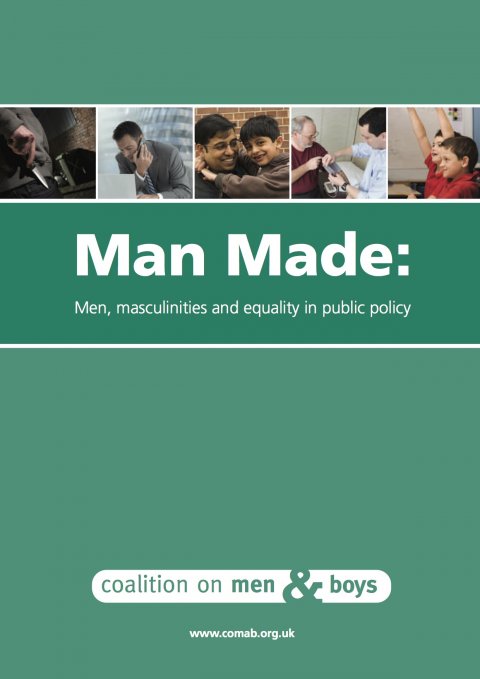Image

In 2009, the Coalition on Men and Boys (UK) published its ground-breaking report ‘Man Made: Men, masculinities and equality in public policy’. The report provides a unique, in-depth picture of the circumstances and needs of men and boys in England and Wales, and the issues they currently face. Focusing on the key themes of work, fatherhood, health, education and violence, ‘Man Made’ analyses how public policy can support and engage with men and boys effectively, and outlines practical proposals for reform.
The key messages from the report are that:
- A more sophisticated public debate is needed about masculinity issues, going beyond stereotypes of men either as oppressors or victims, ‘in control’ or ‘in crisis’. Men as a group are considerably more powerful than women and children. But it is a relatively small group of highly-paid men who dominate politics, business, media, the public sector and the justice system. In contrast, men at the sharp end of economic and social change can face unemployment, ill-health, and social isolation.
- Alongside efforts to improve the position and status of women, public policy needs to respond urgently to the problems that men and boys create and the problems that they experience. First steps should involve: tackling the long hours culture in workplaces; improving men’s use of primary health care; encouraging services to engage more actively with fathers; and developing programmes to educate men and boys about healthy relationships and violence against women.
- The participation of men and boys in achieving change is vital. Whilst some show little or no desire to give up any privileges they hold, many are realising that maintaining the status quo has negative consequences for their health and personal lives – and for others. To engage men and boys in larger numbers it is essential to develop education and social marketing campaigns, shift the predominant culture (eg. in political life, media, workplaces, sports), and change laws and policies in the ways set out in the report.
The report is available in PDF here.